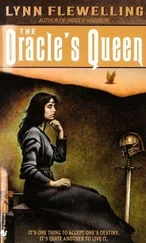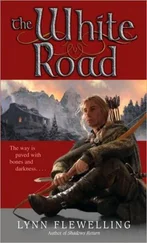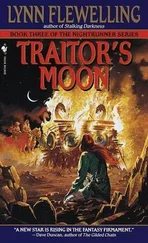“Iya? Iya, are you well?” asked Arkoniel.
Iya shook off the reverie that had claimed her and gave him a reassuring smile. “Ah, we’re here at last, I see.”
Pinched in a deep cleft of rock, Afra was scarcely large enough to be called a village and existed solely to serve the Oracle and the pilgrims who journeyed here. A wayfarer’s inn and the chambers of the priests were carved like bank swallow nests into the cliff faces on either side of the small paved square. Their doorways and deep-set windows were framed with carved fretwork and pillars of ancient design. The square was deserted now, but a few people waved to them from the shadowy windows.
At the center of the square stood a red jasper stele as tall as Arkoniel. A spring bubbled up at its base and flowed away into a stone basin and on to a trough beyond.
“By the Light!” Dismounting, Arkoniel turned his horse loose at the trough and went to examine the stele. Running his palm over the inscription carved in four languages, he read the words that had changed the course of Skalan history three centuries earlier. “‘So long as a daughter of Thelátimos’ line defends and rules, Skala shall never be subjugated.’” He shook his head in wonder. “This is the original, isn’t it?”
Iya nodded sadly. “Queen Ghërilain placed this here herself as a thank offering right after the war. The Oracle’s Queen, they called her then.”
In the darkest days of the war, when it seemed that Plenimar would devour the lands of Skala and Mycena, the Skalan king, Thelátimos, had left the battlefields and journeyed here to consult the Oracle. When he returned to battle, he brought with him his daughter, Ghërilain, then a maiden of sixteen. Obeying the Oracle’s words, he anointed her before his exhausted army and passed his crown and sword to her.
According to Agazhar, the generals had not thought much of the king’s decision. Yet from the start the girl proved god-touched as a warrior and led the allies to victory in a year’s time, killing the Plenimaran Overlord single-handedly at the Battle of Isil. She’d been a fine queen in peace, as well, and ruled for over fifty years. Agazhar had been among her mourners.
“These markers used to stand all over Skala, didn’t they?” asked Arkoniel.
“Yes, at every major crossroads in the land. You were just a babe when King Erius tore them all down.” Iya dismounted and touched the stone reverently. It was hot under her palm, and still as smooth as the day it had left the stonecutter’s shop. “Even Erius didn’t dare touch this one.”
“Why not?”
“When he sent word for it to be removed, the priests refused. To force the issue meant invading Afra itself, the most sacred ground in Skala. So Erius graciously relented and contented himself with having all the others dumped into the sea. There was also a golden tablet bearing the inscription in the throne room at the Old Palace. I wonder what happened to that?”
But the younger wizard had more immediate concerns. Shading his eyes, he studied the cliff face. “Where’s the Oracle’s shrine?”
“Further up the valley. Drink deeply here. We must walk the rest of the way.”
Leaving their mounts at the inn, they followed a well-worn path deeper into the cleft. The way became steeper and more difficult as they went. There were no trees to shade them, no moisture to lay the white dust that hung on the hot midday air. Soon the way dwindled to a faint track winding up between boulders and over rock faces worn smooth and treacherous by centuries of pilgrim’s feet.
They met two other groups of seekers coming in the opposite direction. Several young soldiers were laughing and talking bravely, all but one young man who hung back from his fellows with the fear of death clear in his eyes. The second group clustered around an elderly merchant woman who wept silently as the younger members of her party helped her along.
Arkoniel eyed them nervously. Iya waited until the merchant’s party had disappeared around a bend, then sat down on a rock to rest. The way here was hardly wide enough for two people to pass and held the heat like an oven. She took a sip from the skin Arkoniel had filled at the spring. The water was still cold enough to make her eyes ache.
“Is it much further?” he asked.
“Just a little way.” Promising herself a cool bath at the inn, Iya stood and continued on.
“You knew the king’s mother, didn’t you?” Arkoniel said, scrambling along behind her. “Was she as bad as they say?”
The stele must have gotten him thinking. “Not at first. Agnalain the Just, they called her. But she had a dark streak in her that worsened with age. Some say it came from her father’s blood. Others said it was because of the trouble she had with childbearing. Her first consort gave her two sons. Then she seemed to go barren for years and gradually developed a taste for young consorts and public executions. Erius’ own father went to the block for treason. After that no one was safe. By the Four, I can still remember the stink of the crow cages lining the roads around Ero! We all hoped she’d improve when she finally had a daughter, but she didn’t. It only made her worse.”
It had been easy enough in those black days for Agnalain’s eldest son, Prince Erius—already a seasoned warrior and the people’s darling—to argue that the Oracle’s words had been twisted, that the prophecy had referred only to King Thelátimos’ actual daughter, not to a matrilineal line of succession. Surely brave Prince Erius was better suited to the throne than the only direct female heir; his half-sister Ariani was just past her seventh birthday.
Never mind the fact that Skala had enjoyed unparalleled prosperity under her queens, or that the only other man to take the throne, Ghërilain’s own son, Pelis, had brought on both plague and drought during his brief reign. Only when his sister had replaced him on the throne had Illior protected the land again as the Oracle had promised. Until now.
When Agnalain died so suddenly, it was whispered that Prince Erius and his brother, Aron, had had a hand in it. But the rumor had been whispered with relief rather than condemnation; everyone knew Erius had ruled in all but name during the last terrible years of his mother’s decline. The renewed rumblings from Plenimar were growing too loud for the nobles to risk civil war on behalf of a child queen. The crown passed to Erius without challenge. Plenimar attacked the southern ports that same year and he drove the invaders back into the sea and burned their black ships. This seemed to lay the prophecy to rest.
All the same, there had been more blights and drought in the past nineteen years than even the oldest wizards could recall. The current drought was in its third year in some parts of the country, and had wiped out whole villages already decimated by wildfires and waves of plague brought in from the northern trade routes. Arkoniel’s parents had died in one such epidemic a few years earlier. A quarter of Ero’s population had succumbed in a few months’ time, including Prince Aron, as well as Erius’ consort, both daughters, and two of his three sons, leaving only the second-youngest boy, Korin, alive. Since then, the words of the Oracle were being whispered again in certain quarters.
Iya had her own reasons now for regretting Erius’ coup. His sister, Ariani, had grown up to marry Iya’s patron, the powerful Duke Rhius of Atyion. The couple was expecting their first child in the fall.
Both wizards were sweating and winded by the time they reached the tight cul-de-sac where the shrine lay.
“It’s not quite what I expected,” Arkoniel muttered, eyeing what appeared to be a broad stone well.
Iya chuckled. “Don’t judge too quickly.”
Читать дальше
Конец ознакомительного отрывка
Купить книгу












